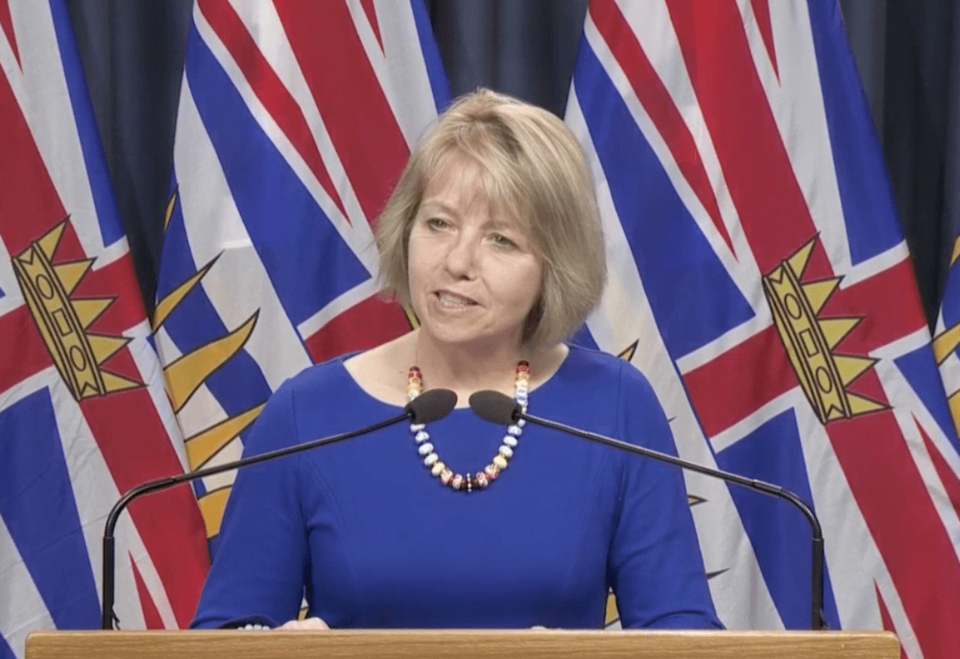There are now 1,699 cases of the coronavirus (COVID-19) in B.C., after health officials announced 52 new cases Monday.
From April 18 to 19 there have been 29 new cases, and from April 19 to 20 there have been 23 new cases.
Provincial health officer Dr. Bonnie Henry reports that there are 700 cases in Â鶹´«Ã½Ó³»Coastal Health (VCH), 705 in Fraser Health, 102 on Â鶹´«Ã½Ó³»Island, 153 in Interior Health and 39 in Northern Health.
There is one new outbreak in a long-term care facility. Currently, there are 20 active outbreaks in facilities and one acute care unit in the Â鶹´«Ã½Ó³»Coastal Health and Fraser Health regions, with 307 individual cases are associated with these outbreaks.
The outbreak at the Mission federal correctional institute in the Fraser Valley continues to grow. Now, the institute has 75 people who have tested positive, including 64 inmates.
There has been transmission from people who have come back to B.C. from the oilsands Kearl Lake Project in Alberta. Seven cases are related, and Henry orders everyone to self-isolate for 14 days upon their return. Anyone who was or is symptomatic is asked to call 8-1-1.
There have been five additional deaths, for a total of 86 fatalities in the province.
"Our hearts go out to their families," says Henry.
There are currently 104 people in acute care in hospital, and 49 are in intensive care.
1039 people have fully recovered and are no longer in isolation.
Henry also mentions the Rural Remote and Indigenous Port Strategy that is welcomed as a way to recognize and proactively support communities that may have had limited access to the level of healthcare found in larger urban centres. She reports that the program will allow more on-site testing and faster access to primary and urgent care. She adds that it is an important part of reconciliation, because it recognizes that First Nations and Indigenous peoples have not received the support that other parts of society have in B.C. in past pandemics.
"We are now using testing again, as of about 10 days ago, to help us quickly identify and address any new community cases and outbreaks," says Henry. "We want to avoid another spike in community cases - that's why we are changing the strategy."
Now, anyone with symptoms can be tested for COVID-19. However, Henry underscores that just because anyone can be tested, does not mean that everyone should get tested. In other words, only people with symptoms should get tested.
"Our new normal for the coming months will still have restrictions," states Henry. "We will continue to require everyone to follow orders."
"We have to ensure that we don't let up too soon and waste that important work we've done so far."
Live conference more to come..Henry also encourages everyone to be kind to people who have to continue to work during the pandemic, such as those working in grocery stores, pharmacies, and in health care. She adds that isolation can be challenging, and that anyone who has an underlying illness should contact a doctor through virtual care. She mentions and as useful resources for mental health.
In a previous briefing, Henry noted that people should consult the new online assessment tool if they aren't sure if they require further testing or assessment for COVID-19. She also underscored the importance of physical distancing, hand washing, covering your mouth if you cough, not touching your face and staying home if you are sick.



